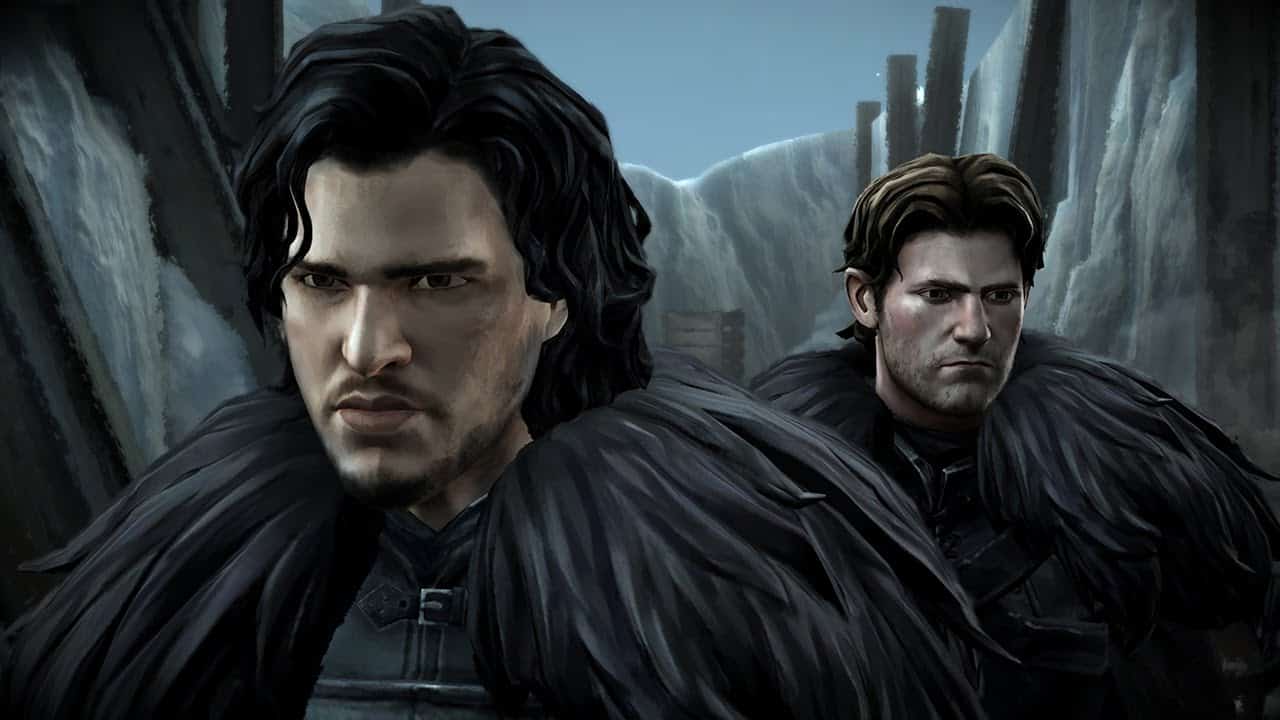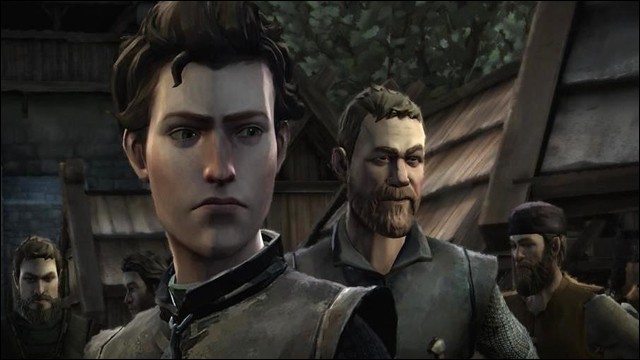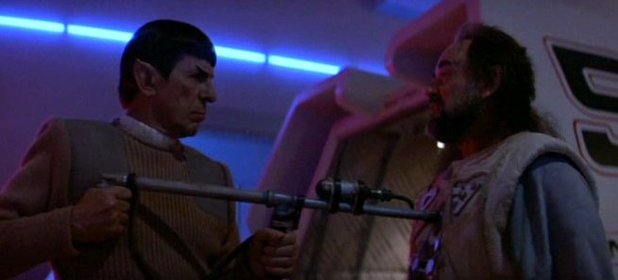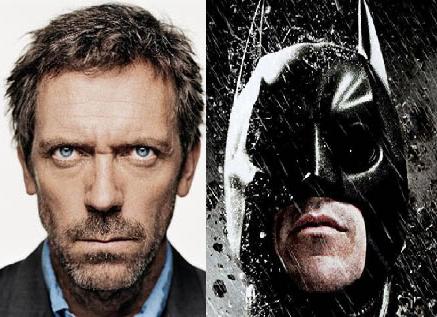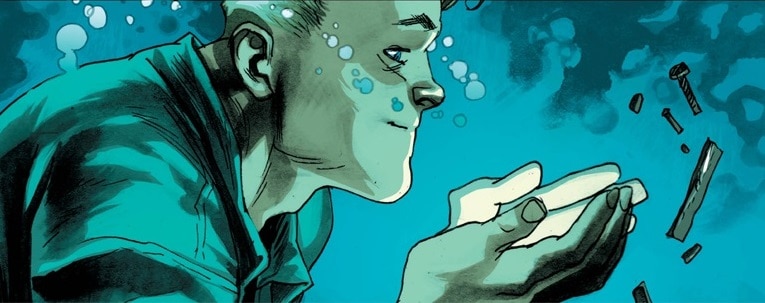Since 2012 many publications have been crediting Telltale Games with the revival of the adventure genre. Despite this, I haven’t touched The Wolf Among Us or Tales from the Borderlands, and I only played through one chapter of The Walking Dead before deciding it wasn’t compelling enough for me. Despite all their praise and game of the year awards, Telltale’s games have just failed to appeal to me.
And then they went and got the license to do a Game of Thrones game. I instantly pre-ordered the season pass, and since then I’ve played through each of the game’s six chapters, and let me tell you: Telltale’s Game of Thrones is not the adventure genre’s equivalent of a phoenix rising from the ashes. Its more akin to a zombie, it grunts and limps its way to the finish line, begging all the while for someone to put it out of its misery.
When I think of adventure games my mind immediately goes to games like The Secret of Monkey Island and Grim Fandango. These classic games had great stories and characters, and surrounded them with fun and challenging obstacles which the player would overcome though exploring the environment, collecting items, and solving puzzles. Unfortunately, something was lost in translation when Telltale decided to bring adventure games back from the dead. It can be argued that Telltale’s Game of Thrones has intriguing story arcs and characters, but that’s all this game has. There’s virtually no gameplay. Exploration is near non-existent, a few items can be collected but every single one of them is basically pointless and can be missed without consequence, meanwhile there is not a single puzzle to be found throughout the entire adventure.
Telltale enthusiasts have tried to explain to me that what the game lacks in exploration and puzzles, it makes up for by giving the player a wide range of choices, and thus control over where the story takes you. I suppose that’s a valid point… if you’re willing to blind yourself to the fact that it’s a complete lie.
Upon completing the first chapter of the game, I was mildly impressed. I enjoyed the new characters and settings Telltale had created within George R.R. Martin’s universe, and I was left with the feeling that my choices had impacted the lives of these characters, both positively and negatively. I was actually compelled enough to play through it again and make some different choices, just to see how much I could impact the world around me. Big mistake. It turns out no matter what choices you make in chapter 1, the outcomes are always the same. A character may respond to you with a slightly different line of dialog if you chose option A over option B, but at the end of the day all roads lead to the same conclusions. This remains true of 95% of the choices made throughout the remainder of the game. There are only a handful of choices that the player can make which actually alter the course of future events, and even then the alterations are quite minor. Telltale’s Game of Thrones only gives the illusion of choice, and once that illusion is discovered, the magic is gone.
Considering the fact that the story and its characters are the game’s only leg to stand on, it’s disappointing how much Telltale relies on established characters when they could have opted to further develop their own. It’s cool to see characters we know and love from the books/show, but the events of the game take place in-between already completed seasons of the TV show, so we know that nothing of great significance will happen to these well-known characters, so why waste so much screen time on some of them? Jon Snow is implemented perfectly: we see him at the wall doing his thing, we talk to him a bit, and move on. Then we have Ramsay, who for some reason gets way too much attention. We know he cannot die or lose a limb or anything, so why even pretend like we can harm him? It’s just a waste of everyone’s time. Instead of showing Ramsey flaying people, we should have been given more reasons to hate the Whitehills.
The story as a whole can be described in one word: disappointing. The first episode sets everything up nicely, but from there we spend too much time making pointless “choices” which amount to nothing, rather than pushing the main plot points forward. Upon completion of the fifth episode it was as clear as day that Telltale had too many balls in the air, and some story lines just wouldn’t see proper closure. Much to my surprise, upon finishing episode 6, I discovered that none of the main storylines see any semblance of resolution! We spend all six episodes wondering what exactly The North Grove is, only to finish the final episode with the same question, and the fate of the Forrester family is still completely up in the air. At this point a “Season 2” seems inevitable, and seeing as how Telltale takes their sweet time, fans won’t be getting closure any time soon.
The game has plenty of issues from a technical standpoint as well. The frame rate noticeably dips when changing in-between scenes, the lip syncing is downright awful at times, and I constantly ran into a bug where certain things in the environment did not make any sound. Having a giant bear roar in my face yet not make a peep was definitely quite jarring. Many players, including myself, ran into glitches where our choices would not carry over from one chapter to the next, forcing players to either replay entire chapters or simply go with whatever the default choices are (which isn’t a big deal at the end of the day, since the vast majority of choices are pointless).
While replaying the sixth episode to see if making different choices effected the ending (it didn’t), during several combat sequences I simply laid the controller down on the ground to see what would happen when I failed the quick time events. There was one area where I actually got a game over, but most of the time my character would go through the motions of combat without any input from me. During dialog sequences, if the player fails to select an option, the game simply carries on the conversation, often times with the other parties reacting in the same way they would if you did reply. This got me thinking: if a game developer were to put a book on the screen, and asked you to press the X button to turn the page, would that qualify as a ‘game’? Telltale’s Game of Thrones barely deserves the classification of ‘video game’, and even in the eyes of a die-hard fan of A Song of Ice and Fire, this adventure is a truly underwhelming disappointment.
